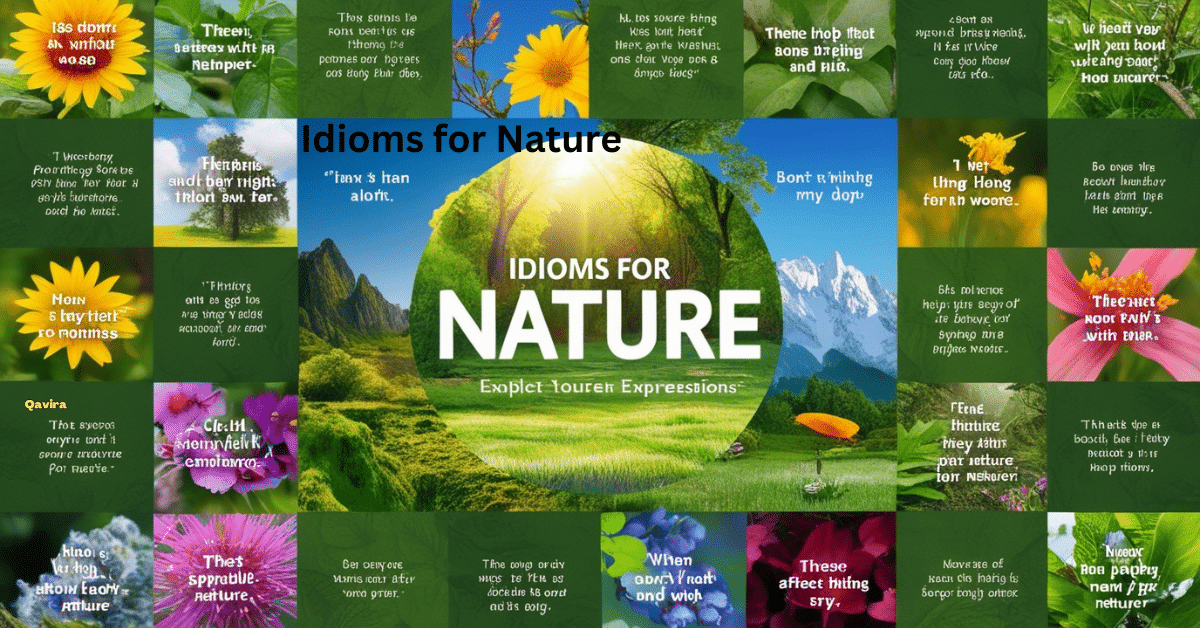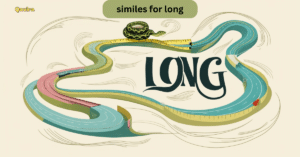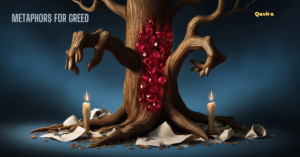Idioms for nature capture the beauty and complexity of the natural world while also reflecting various human emotions and experiences. These expressions help convey feelings and ideas related to nature in a vivid and relatable manner, enriching our language and communication.
By using these idioms, we can describe everything from the changing seasons to the tranquility of a forest. Each phrase offers a unique lens through which we can appreciate the wonders of nature and express our thoughts and feelings about it.
Idioms for Nature
1. A breath of fresh air
- Meaning: Something new and refreshing.
- In a Sentence: “After a long week, the weekend getaway felt like a breath of fresh air.”
- Other Ways to Say: Refreshing change, new perspective, revitalizing experience.
2. The grass is always greener on the other side
- Meaning: People often think others have it better than they do.
- In a Sentence: “She thought moving to the city would be better, but the grass is always greener on the other side.”
- Other Ways to Say: Envying others, seeking better circumstances, wishing for change.
3. To go with the flow
- Meaning: To adapt to circumstances without resistance.
- In a Sentence: “When plans changed, I decided to go with the flow and enjoy the day.”
- Other Ways to Say: Be flexible, adapt easily, take things as they come.
4. To take root
- Meaning: To become established or settled.
- In a Sentence: “After moving to the new town, it took a while for me to take root.”
- Other Ways to Say: Establish oneself, settle in, find a home.
5. To weather the storm
- Meaning: To endure a difficult situation.
- In a Sentence: “They managed to weather the storm of financial troubles last year.”
- Other Ways to Say: Overcome difficulties, survive challenges, endure hardship.
6. A drop in the ocean
- Meaning: A very small or insignificant amount compared to what is needed.
- In a Sentence: “The donation was just a drop in the ocean for the charity’s needs.”
- Other Ways to Say: Insignificant contribution, tiny part, minimal impact.
7. To put down roots
- Meaning: To settle in one place and establish a home.
- In a Sentence: “After years of traveling, they finally decided to put down roots in the countryside.”
- Other Ways to Say: Settle down, establish a home, make a life.
8. To bloom where you are planted
- Meaning: To thrive in your current situation.
- In a Sentence: “Even in a challenging job, she learned to bloom where she was planted.”
- Other Ways to Say: Make the best of it, thrive in conditions, flourish where you are.
9. To be in the weeds
- Meaning: To be overwhelmed or bogged down by details.
- In a Sentence: “I’m in the weeds with this project; I need to simplify my approach.”
- Other Ways to Say: Overwhelmed by details, caught up in specifics, buried in work.
10. To have a heart of oak
- Meaning: To be strong and courageous.
- In a Sentence: “She faced her fears with a heart of oak, never backing down.”
- Other Ways to Say: Strong spirit, courageous heart, resilient nature.
11. To go out on a limb
- Meaning: To take a risk or put oneself in a vulnerable position.
- In a Sentence: “He went out on a limb by investing in a startup.”
- Other Ways to Say: Take a chance, risk it all, step into the unknown.
12. To reap what you sow
- Meaning: To receive the consequences of your actions.
- In a Sentence: “If you work hard, you will reap what you sow in the end.”
- Other Ways to Say: Consequences of actions, outcomes based on efforts, karma.
13. To be like a deer in headlights
- Meaning: To be stunned or frozen in response to a situation.
- In a Sentence: “When the teacher called on him, he was like a deer in headlights.”
- Other Ways to Say: Stunned, caught off guard, paralyzed by surprise.
14. To hit the ground running
- Meaning: To start quickly and effectively.
- In a Sentence: “She hit the ground running on her first day at the new job.”
- Other Ways to Say: Start strong, jump right in, get going fast.
15. To find your footing
- Meaning: To gain confidence or stability in a new situation.
- In a Sentence: “It took her some time to find her footing in the new environment.”
- Other Ways to Say: Gain stability, establish confidence, adapt successfully.
16. To have a green thumb
- Meaning: To be good at gardening or growing plants.
- In a Sentence: “With her green thumb, she transformed the backyard into a beautiful garden.”
- Other Ways to Say: Skilled gardener, plant-loving, horticulturist.
17. To take the bull by the horns
- Meaning: To confront a difficult situation directly.
- In a Sentence: “He decided to take the bull by the horns and address the issue at the meeting.”
- Other Ways to Say: Face challenges head-on, tackle directly, confront boldly.
18. To go to seed
- Meaning: To decline in condition or quality.
- In a Sentence: “The once-beautiful garden has gone to seed since no one has tended it.”
- Other Ways to Say: Deteriorate, fall apart, lose quality.
19. To be a breath of fresh air
- Meaning: Someone or something new and invigorating.
- In a Sentence: “Her creative ideas were a breath of fresh air for the team.”
- Other Ways to Say: Refreshing change, new perspective, invigorating presence.
20. To be in full bloom
- Meaning: To be at the peak of development or beauty.
- In a Sentence: “The garden is in full bloom, showcasing vibrant flowers.”
- Other Ways to Say: Peak condition, flourishing, thriving.
21. To go against the grain
- Meaning: To act contrary to what is normal or expected.
- In a Sentence: “His decision to pursue art went against the grain of his family’s expectations.”
- Other Ways to Say: Break from tradition, defy norms, go off the beaten path.
22. To be on cloud nine
- Meaning: To be extremely happy or joyful.
- In a Sentence: “She was on cloud nine after receiving the job offer.”
- Other Ways to Say: Over the moon, in seventh heaven, very happy.
23. To leave no stone unturned
- Meaning: To search thoroughly and exhaustively.
- In a Sentence: “He left no stone unturned in his quest to find the missing documents.”
- Other Ways to Say: Thorough search, exhaustive effort, comprehensive investigation.
24. To draw a line in the sand
- Meaning: To set a limit beyond which one will not go.
- In a Sentence: “She drew a line in the sand regarding her work-life balance.”
- Other Ways to Say: Set boundaries, establish limits, define conditions.
25. To be as old as the hills
- Meaning: To be very old or ancient.
- In a Sentence: “That old barn is as old as the hills, dating back over a century.”
- Other Ways to Say: Ancient, time-worn, historical.
26. To have a silver lining
- Meaning: To find a positive aspect in a negative situation.
- In a Sentence: “Even after losing her job, she found a silver lining in the opportunity to start fresh.”
- Other Ways to Say: Positive aspect, glimmer of hope, bright side.
27. To be a thorn in someone’s side
- Meaning: To be a constant annoyance or problem.
- In a Sentence: “His constant complaints became a thorn in my side.”
- Other Ways to Say: Annoyance, persistent problem, source of irritation.
28. To have a heart of gold
- Meaning: To be very kind and generous.
- In a Sentence: “She has a heart of gold, always helping those in need.”
- Other Ways to Say: Kind-hearted, generous spirit, compassionate.
29. To be in the driver’s seat
- Meaning: To be in control of a situation.
- In a Sentence: “Now that she has the promotion, she’s in the driver’s seat.”
- Other Ways to Say: In control, calling the shots, leading the way.
30. To go out of the woods
- Meaning: To be in a safer or better situation after a difficult period.
- In a Sentence: “After months of uncertainty, the company is finally out of the woods.”
- Other Ways to Say: Out of danger, past the worst, in a better place.
31. To be a drop in the bucket
- Meaning: A small or insignificant amount compared to what is needed.
- In a Sentence: “His contribution was just a drop in the bucket for the overall project budget.”
- Other Ways to Say: Tiny fraction, minimal impact, negligible amount.
32. To stand the test of time
- Meaning: To endure or remain relevant over a long period.
- In a Sentence: “The classic novel has truly stood the test of time.”
- Other Ways to Say: Timeless, enduring, lasting significance.
33. To have one foot in the grave
- Meaning: To be very close to death or in poor health.
- In a Sentence: “After his recent illness, he felt like he had one foot in the grave.”
- Other Ways to Say: Near death, in poor health, very sick.
34. To be a part of the furniture
- Meaning: To be a longstanding and familiar presence.
- In a Sentence: “After years at the company, he feels like a part of the furniture.”
- Other Ways to Say: Longtime presence, familiar fixture, established member.
35. To be in the same boat
- Meaning: To be in the same situation as others.
- In a Sentence: “During the pandemic, we were all in the same boat, facing uncertainty.”
- Other Ways to Say: In it together, facing similar challenges, shared experience.
36. To be a breath of fresh air
- Meaning: Something or someone new that is refreshing.
- In a Sentence: “Her ideas were a breath of fresh air in the stale meeting.”
- Other Ways to Say: Refreshing change, invigorating presence, new perspective.
37. To have a sunny disposition
- Meaning: To be cheerful and optimistic.
- In a Sentence: “Despite the challenges, she always maintains a sunny disposition.”
- Other Ways to Say: Cheerful attitude, optimistic outlook, bright demeanor.
38. To be at the end of your rope
- Meaning: To be out of patience or options.
- In a Sentence: “After dealing with the issue for weeks, I felt at the end of my rope.”
- Other Ways to Say: Out of patience, ready to give up, feeling overwhelmed.
39. To be on shaky ground
- Meaning: To be in a precarious or unstable situation.
- In a Sentence: “The company’s financial situation is on shaky ground.”
- Other Ways to Say: Unstable position, precarious situation, uncertain footing.
40. To throw caution to the wind
- Meaning: To act without worrying about the consequences.
- In a Sentence: “She decided to throw caution to the wind and take the trip.”
- Other Ways to Say: Take a risk, act recklessly, disregard safety.
Quiz on Idioms for Nature
1. What does “the grass is always greener on the other side” mean?
a) People often think others have it better
b) Grass is actually greener elsewhere
c) Nature is always better
Answer: a) People often think others have it better
2. What does “to weather the storm” imply?
a) To enjoy bad weather
b) To endure a difficult situation
c) To create a storm
Answer: b) To endure a difficult situation
3. What does “to bloom where you are planted” mean?
a) To thrive in your current situation
b) To only bloom in gardens
c) To be stuck
Answer: a) To thrive in your current situation
4. What does “to put down roots” signify?
a) To travel frequently
b) To settle in one place
c) To plant flowers
Answer: b) To settle in one place
5. What does “a drop in the ocean” refer to?
a) A large contribution
b) An insignificant amount
c) A significant change
Answer: b) An insignificant amount
6. What does “to take the bull by the horns” mean?
a) To avoid challenges
b) To confront a difficult situation
c) To be reckless
Answer: b) To confront a difficult situation
7. What does “to go with the flow” imply?
a) To resist changes
b) To adapt easily to circumstances
c) To be rigid
Answer: b) To adapt easily to circumstances
8. What does “to reap what you sow” signify?
a) To avoid consequences
b) To receive outcomes based on actions
c) To plant seeds
Answer: b) To receive outcomes based on actions
9. What does “to be like a deer in headlights” mean?
a) To be very aware
b) To be stunned or frozen
c) To be brave
Answer: b) To be stunned or frozen
10. What does “to hit the ground running” refer to?
a) To start quickly and effectively
b) To slow down
c) To hesitate
Answer: a) To start quickly and effectively
Conclusion
Idioms for nature enrich our language by expressing complex feelings and ideas related to the natural world. They allow us to convey emotions, observations, and experiences vividly and creatively. By using these idioms, we can deepen our understanding of nature and share our thoughts with others in a relatable manner. Embracing these expressions enhances our communication and appreciation for the beauty and intricacies of nature.

Carla Jones is an expert blogger in English Language Teaching, sharing innovative strategies and insights to empower educators and enhance language learning experiences for students worldwide.








